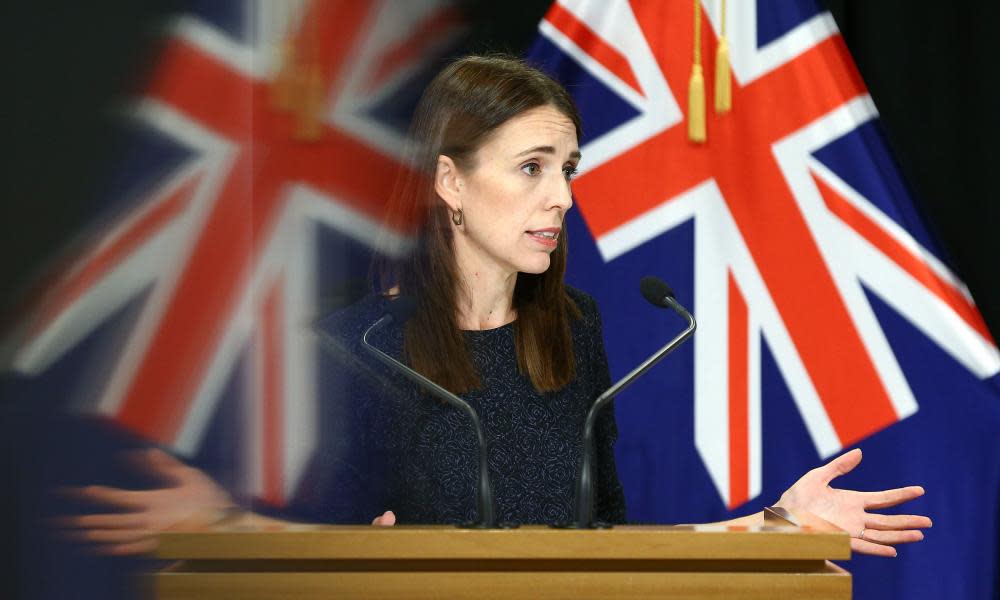Coronavirus has delivered political consensus to New Zealand – but for how long?

Jacinda Ardern acted decisively in an attempt to get ahead of the Covid-19 curve, putting New Zealand into strict lockdown far earlier than other western leaders. It was a bold decision with massive economic implications. The public are listening to their prime minister and are united behind her. But the road ahead is littered with pitfalls as the nation comes to terms with the economic and social cost, and nervously waits to see whether these measures will deliver the knock-out blow to the virus in New Zealand.
So far, there has been extraordinary buy-in to the lockdown, with opinion surveys showing extremely high levels of support. Ardern’s directive to “be kind” to one another during the crisis, has become ubiquitous. There is an overwhelming consensus that, while the individual and societal costs are huge, the right call has been made.
The government’s decisiveness goes beyond just these big calls. On a daily basis, Ardern’s government has taken action first – even if the final details haven’t fully been ironed out. The wage subsidy for businesses is a good example. There has been confusion, changes and clarifications along the way, but there are now hundreds of thousands of workers who still have jobs – and at least 80% of their normal income – who would otherwise have been made redundant in the last week.
Related: Tougher New Zealand rules on Covid-19 could set it apart as 'normal' nation after lockdown
This is the new, and accepted way of governing. An issue comes to the fore one day, and there is a government response the next. For example, concerns about supermarket price-gouging swiftly led to the establishment of a mechanism for the public to report inappropriate business behaviour to authorities. This is the type of leadership people crave and expect in these circumstances, and the prime minister is delivering.
That’s not to say there hasn’t been frustration. Messaging about what people can and can’t do during the lockdown has been confused at times. Politicians and authorities seem at odds over to what extent people can leave their homes for exercise and fresh air. There are signs the police are interpreting the rules inconsistently, and the prime minister has had to shut down their suggestions of a curfew.
But, by and large, the public is cutting the government a lot of slack as New Zealanders, particularly in these early stages, show understanding and tolerance if the government cannot provide answers and solutions to every problem that arises straight away.
Related: New Zealand site to report Covid-19 rule-breakers crashes amid spike in lockdown anger
Keeping on top of issues will be vital, however. If problems go unresolved this could quickly change. New Zealanders are also being encouraged to inform authorities about others breaking lockdown rules. This could have mixed consequences. The worst-case scenario is that it encourages a vigilante ethos and reduces trust in the community.
If the lockdown doesn’t produce the hoped-for results, political opponents will be able to point to critics of the government’s response and say Ardern did not implement crucial measures in time. Calls by epidemiologists for the borders to be closed and the country to be locked down were made well before the Government acted.
Respected epidemiologist Sir David Skegg says the government lacks a coherent strategy for dealing with the crisis, and there is not enough testing and contact-tracing. Others say the government may have acted in the nick of time.
What will be troubling Ardern and finance minister Grant Robertson, in particular, is even if the lockdown is successful, what happens next? For New Zealand, this is particularly worrisome. Tourism is a massive part of our economy and even if we beat the virus locally, it is now clear that we will remain at risk from international visitors for a long while to come. Border restrictions will have to remain in place for the foreseeable future.
Compounding that is that the entire nature and basis of international travel and tourism will now fundamentally change. With two-thirds of airlines predicted to be out of business by next year, the days of cheap airfares, allowing travellers to hop over the Tasman to Queenstown for the weekend, are probably over.
Cruise ships were another massive contribution to many provinces’ economies and it’s hard to image New Zealand seeing too many of those in the coming years.
New Zealand’s economy is particularly reliant on globalisation, and so we are entirely exposed to world economic conditions, which are looking very grim.
After the current emergency subsidies end, mass redundancies are likely, particularly in sectors such as tourism and hospitality. New jobs will have to be created and that is going to take all the decisiveness and political courage Ardern and her government can muster. The one thing we can be sure of is there won’t be a political consensus around that.


